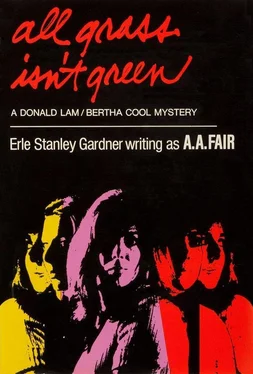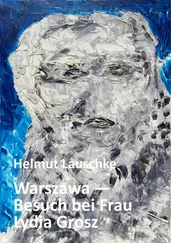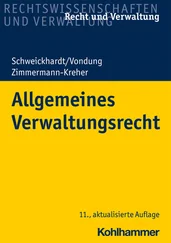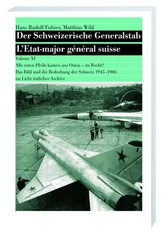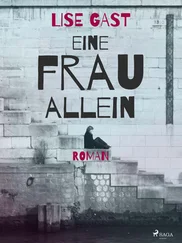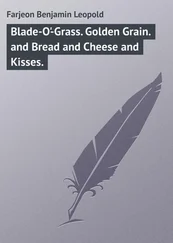“I live in that house over there,” he said, pointing. “The white house.”
“Do you have a telephone?”
“Yes.”
I said, “I’ll wait here. Don’t say anything to any of the people out there. Go to your house. Get your father if he is home, your mother if he isn’t home. Telephone the Calexico police. Tell them to get out here right away, that Donald Lam has found some important evidence.”
“A Lam?” he asked.
“Donald Lam,” I said. “L-a-m. You think you can do that?”
“Oh, sure.”
“And don’t say anything to anybody except your parents.”
“Only my mother,” he said. “My father is at work.”
“Then hurry,” I told him.
I sat down on the bank of the ditch and waited while the kid wormed his way through the barbed-wire fence, spattered across the muddy bottom of the ditch, and, with his bare brown feet beating an excited tattoo on the ground, headed off for the big white house.
It took about fifteen minutes for Frank Sellers and a Calexico cop to get there.
The kid was waiting for them. He beckoned them eagerly and led the way across the ditch.
Sellers and the cop hesitated before getting in the mud, but finally they waded on through.
The people who had been aimlessly milling around suddenly became interested when they saw the cops’ car and the ten-year-old kid leading the two men across the drainage ditch. Then they noticed me and one or two came trooping across, but the officer waved them back before they got into the alfalfa field.
Sellers and the officer came slogging down to me.
“This had better be good, Pint Size,” Sellers said.
“Want to take a look?” I asked.
I led the way and stopped when I reached a point where they could see the gun.
“I’ll be go to hell!” Sellers said.
They looked at each other; then they looked at me. “Have you been over there?” Sellers asked.
“This is as close as I’ve been.”
“I hope you’re telling the truth,” Sellers said. “How did you know that gun was there?”
“I didn’t. I came out to look the place over.”
“Lots of people have looked the place over,” Seller said.
“I reasoned that if a man wanted to get rid of a gun, he’d stand on the edge of that drainage ditch and throw it out into the field, just as far as he could throw it.”
“Why not take it with him for a ways and throw it where it wouldn’t be found.”
“He might not have had that much time. The gun was too incriminating. He wanted to get rid of it right now.”
“All right, Pint Size,” Sellers said, “you masterminded that, but what caused you to cross the ditch?”
“Because no one else had crossed the ditch,” I said.
“How did you know that?”
“No one could have crossed the ditch without leaving tracks.”
“And so?” Sellers asked.
“So I knew that no one had looked in the alfalfa field.”
“And how did you know the gun was in the alfalfa field?”
“I didn’t, but as a matter of good investigative technique I knew that all the terrain around the scene of the crime should be explored, particularly places where a weapon could have been thrown.”
Sellers looked at the Calexico cop, took a cigar from his pocket and put it in his mouth, walked over to the gun, bent slowly down, took a fountain pen from his pocket, inserted it in the barrel and lifted the gun.
“The chances of latent fingerprints on a gun are pretty slim,” he said, “but we’ll just protect this evidence as, much as we can and dust it for fingerprints.”
“For my money,” the Calexico cop said, “you’ll find the fingerprints of this slick detective.”
Sellers shook his head. “We may find it’s been wiped clean of fingerprints, but he’s too slick to pull a boob trick like that.”
We walked back along the bank of the ditch, Sellers, holding the gun up in the air, the fountain pen in the barrel, keeping it from falling.
He had some trouble getting through the fence and holding the gun, looking like a Japanese juggler trying to hold a ball aloft on a billiard cue.
By this time the crowd had gathered in a big semicircle, gaping at the officers and the gun.
The officers slogged across the muddy bottom of the drainage ditch. I walked across barefoot and over to where I had parked my car.
“Don’t try to get lost,” Sellers warned. “We may want you.”
“You can always find me,” I told him. “Unit Seven, Maple Leaf Motel, or somewhere in the vicinity.”
“You’re right,” Sellers said, “We can always find you. I just hope it won’t be too much trouble.”
I got back in my car and tried to drive barefooted. It was too ticklish.
I stopped at the first service station, got out, and turned the water hose on my feet. The attendant looked at me with a baffled expression.
“I got my feet dirty,” I told him.
He shook his head. “Now I’ve seen everything,” he said.
I didn’t try to put my socks on over my wet feet. I simply put my shoes on and drove back to the De Anza Hotel, found that Milton Carling Calhoun was in Room 3613, found the room and knocked on the door.
Calhoun opened the door eagerly.
His face showed disappointment when he saw who it was. “You again!” he said.
“Me again,” I told him.
My feet were dry by this time. I walked in and sat down in a chair, pulling my socks from my pocket. I took off my shoes and put my socks on.
“Now what,” Calhoun asked, “is the idea?”
“I went out to the scene of the crime,” I said.
“You mean the murder?”
“What other crime is there?”
“Dope smuggling.”
“It was the same scene,” I said.
“What happened?” he wanted to know.
I said, “The cops pulled a boner.”
“How come?”
I grinned and said, “Sergeant Sellers came down here from Los Angeles. He’s the high-powered liaison guy, the expert on homicide investigation, and he pulled a boner right in front of all these local cops. I’ll bet he feels like two cents right now.”
“What did he do?”
“He failed to search the scene of the crime for a weapon.”
“You mean they hadn’t...?”
“Oh, they’d looked the trailer over and they’d looked the ground over all around the trailer,” I said, “but there was an alfalfa field and a ditch with a muddy bottom between the edge of the highway right-of-way and the field. If anybody had tried to cross over they’d have left tracks.
“The officers looked the place over, found there were no tracks, so assumed no one had been over to the alfalfa field and they could cross it off the books.”
“And what happened?” Calhoun asked.
I said, “You should always search the premises, not only the immediate premises, but look at places where person could stand and throw some object such as weapon that he wanted to get rid of.”
“You mean there was a weapon?” Calhoun asked.
“There was a weapon,” I said. “A thirty-eight-caliber revolver, blued-steel, snub-nose — it looked to me an expensive gun. The police took it into custody and, course, got on the telephone right away.
“Within a matter of minutes they’ll have found the sales record of the gun from the numbers. Then they’ll process it for fingerprints — probably they won’t have much luck with that. Latent fingerprints aren’t usually found on a gun.”
“But they can identify it from the numbers?”
“Sure,” I said. “There’s a sales record on every gun. Now, is there any chance this is your gun?”
He shook his head emphatically. “Not one chance in a thousand. I know where my gun is.”
“Where?”
He hesitated, then said, “Home.”
Читать дальше
